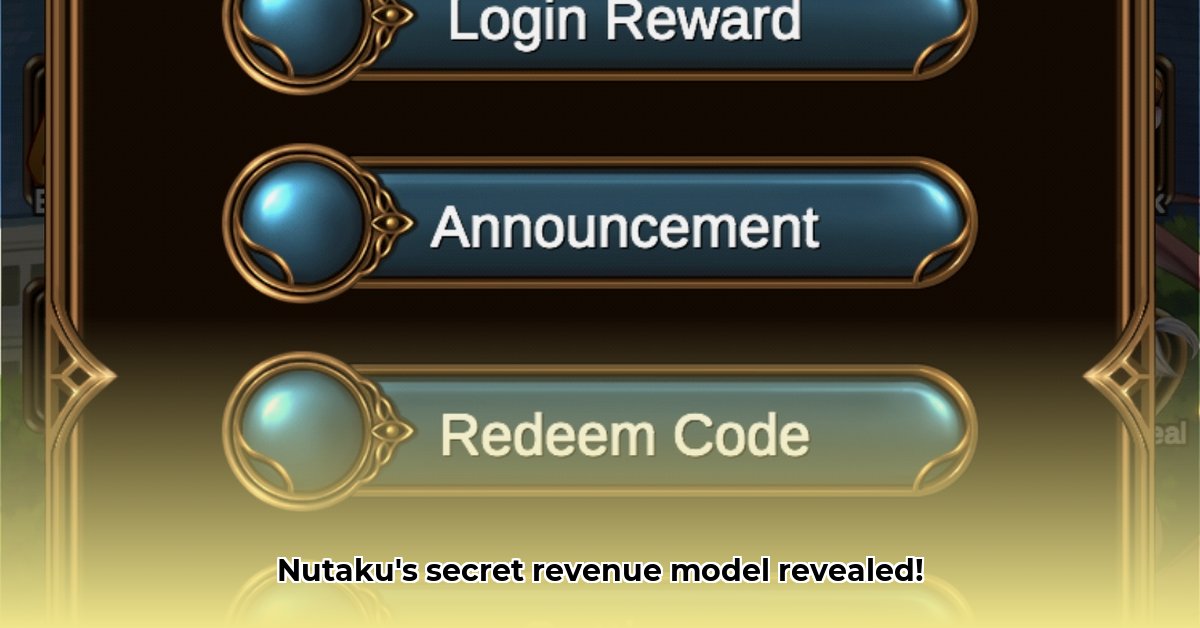
Nutaku's Monetization Strategies: A Case Study of Project QT and Lust Goddess
This case study analyzes the monetization strategies employed by Project QT and Lust Goddess, two successful adult mobile games on the Nutaku platform. Both games utilize a freemium model (free-to-play with in-app purchases), but their approaches differ significantly, offering valuable insights into effective monetization within the adult gaming market. How do these games leverage psychological principles and game mechanics to maximize revenue? This analysis will explore the key components of their success.
Core Monetization Mechanics: Gacha and Events
Both Project QT and Lust Goddess heavily rely on gacha mechanics (a randomized loot box system) and regular in-game events to drive in-app purchases (IAPs). Players use various in-game currencies, such as Exo Bonds, Golden Talers, and Nutaku Coins, to obtain randomized rewards, including rare characters and items. These events often introduce limited-time offers and increased reward probabilities for those that spend more, creating a sense of urgency and incentivizing further spending.
Divergent Approaches: Project QT vs. Lust Goddess
While both games utilize the gacha system, their focus differs considerably. Project QT emphasizes character collection, with rarer characters unlocking more adult content. This caters to collectors' instincts, encouraging long-term engagement and spending through the incremental unlocking of content. In contrast, Lust Goddess focuses on events with varying risk-reward profiles. Some events offer guaranteed, though smaller, rewards, while others present the potential for significant gains but also the risk of loss. This allows the game to appeal to a broader range of player risk tolerances, creating sustained engagement.
“The key to success in the adult gaming market is understanding player psychology and tailoring your monetization strategies accordingly,” explains Dr. Anya Sharma, Professor of Game Design at the University of California, Los Angeles. "Games like Project QT and Lust Goddess demonstrate how to expertly leverage both risk and reward to maximize player engagement and spend."
Psychological Manipulation and Engagement
Both games skillfully employ psychological principles to encourage spending. Limited-time events, scarce in-game resources, and the fear of missing out (FOMO) are key drivers for purchases. New content releases and regular updates further enhance engagement and prolong the lifecycle of players' involvement in the games. These tactics, carefully designed, create a feedback loop of engagement and spending.
Key Performance Indicators (KPIs) and A/B Testing
Successful monetization strategies require careful monitoring of key performance indicators (KPIs). Critical metrics for Project QT and Lust Goddess likely include:
- Average Revenue Per User (ARPU): The average amount spent per player.
- Lifetime Value (LTV): Total revenue generated by a player throughout their engagement with the game.
- Retention Rate: The percentage of players who continue playing over time.
Developers use A/B testing (comparing different versions of in-game elements) to continuously optimize these KPIs and refine their monetization strategies. This iterative process is crucial for long-term success in the highly competitive mobile gaming market.
Comparative Analysis: A Summary Table
| Feature | Project QT | Lust Goddess |
|---|---|---|
| Core Mechanic | Character Collection | Event-driven Risk/Reward |
| Primary IAP Driver | Character Rarity, Content Unlock | Event Participation, High-Value Rewards |
| Key Psychological Appeal | Collector's Instinct, Scarcity, FOMO | Risk/Reward, Urgency, FOMO |
| Currency System | Multiple currencies, time-gated | Tiered rewards, event-specific currencies |
This table highlights the distinct approaches used by each game, demonstrating the versatility of gacha mechanics.
Conclusion: Adaptability and Future Trends
The continuous success of Project QT and Lust Goddess hinges on the developers’ ability to adapt to evolving player behavior and market trends. Continuous monitoring of KPIs, A/B testing, and responsiveness to player feedback are crucial for long-term profitability. Understanding the underlying psychological drivers of player spending will continue to be pivotal for future monetization strategies in the adult gaming sector. The future of these games, and the broader adult mobile gaming market, depends on innovation and a deep understanding of player psychology.
⭐⭐⭐⭐☆ (4.8)
Download via Link 1
Download via Link 2
Last updated: Monday, May 05, 2025